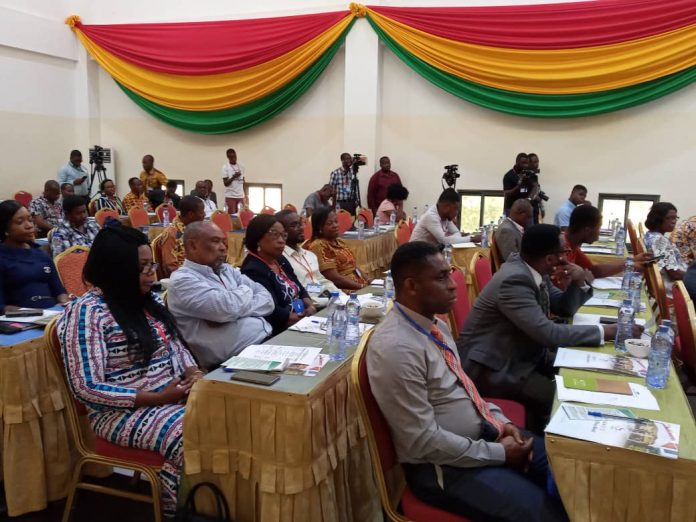CSIR-Food Research Institute, Ghana has today, Wednesday 29th January, 2020 organised a one day forum, christened, “Safe-fish” in Accra.
It was targeted to develop bio-control agents for improved aquaculture productivity among tilapia farmers, and thus economic and social development by addressing food and nutrition security in Ghana and Uganda.
The “SafeFish” forum also had bulk of its focus on improving tilapia health and optimize more yields
The forum was to create awareness among fish farmers including women or women groups, inland fisheries sector in Ghana and Uganda, fish traders and exporters, fish processors, consumers, and in line with Ministries for Fisheries and Aquaculture.
According to a representative of the Minister of Environment, Science Technology and Industry (MESTI), Madam Lovina Owusu, the government was committed to improving the sector; it had initiated “Aquaculture for food and jobs” at James town a suburb in Accra.
She noted that the industry was among the fastest growing ones in the world.
She said it was, therefore, necessary to deepen the relation between research and policy making.
She admonished the researchers to be more proactive in ensuring highest degree of accountability and transparency
“We are spending tax payers’, or stakeholders’ money and so we should put up good behavior to determine what is best for us, as Ghanaian”. she hinted
A researcher with CSIR, Dr Etornyo Agbeko, in his presentation at the forum, noted that the industry was valued at 163 billion dollars globally, and it was at a fast growing point in Ghana as well.
He said tilapia contributed 52 Metric tonnes in the midst of over one metric tonnes in demand.
“Focusing on tilapia production, he said the spice was a source of 40 percent protein and many vitamins, but with low fat”.
He enumerated challenges facing the industry include high cost of feed, deterioration in water quality, inadequate fingerlings, bacteria and fungi Infestations.
“And that as a result of the challenges, per 2017, 2018 statistics, the production was going down, and the farmers could lose up to 70 percent of their fish stock”. Mr. Agbeko stated.
To this point, he stated that there were a number of programs to mitigate the challenges through the bio-control products such as bacteriophage under the SafeFish project being executed by the CSIR and other partners including the universities.
He noted that an increase in feed manufacturers coming into the country which translate into lower cost of fish feed.
“Selective breeding programs, for quality tilapia, and the production of quality fingerlings from Berlin under the TISEED project”.
“Vaccination for ISKNV and Streptococcus species was underway. He added.
Dr. Agbeko expressed worry over absenteeism of fish farmers at their farms, leaving their farms under caretakers.
He said there was only 40 percent female involve in fish farming in the country.
“And that only 35 percent of the farmers were educated in the face of the industry now becoming scientific”. He stressed on.
The event attracted fish farmers across the country and other international dignitaries in the field.
Credit: Nii Okpoti Odamttem











